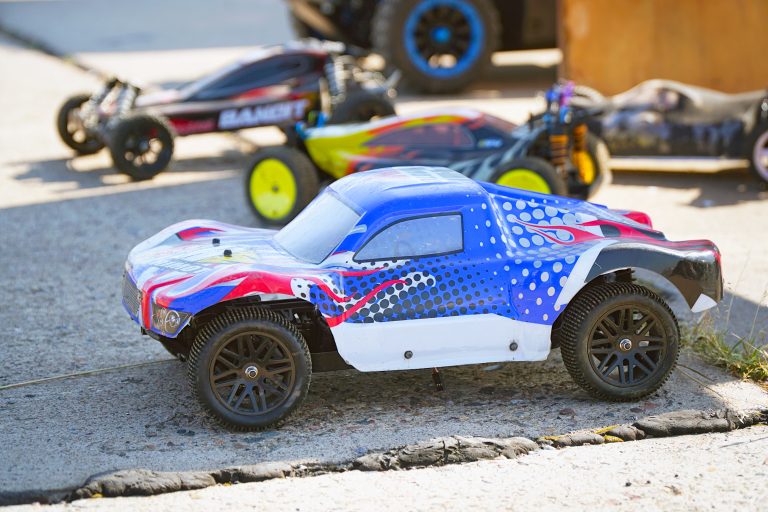Student-designed mini vehicles zoomed around raced tracks and soared off-ramps at Kettering University during the 14th Annual Innovative Vehicle Design Challenge this month. Student teams from 15 high schools across the U.S. state of Michigan gathered on May 18 and 19 to compete in the event, which challenged them to engineer autonomous, electric, and hybrid vehicle designs.
The student teams ranged from 6th-12th grade. Half of the teams participated virtually, while the other half tested their designs at the university’s Mobility Research Center, which houses a vehicle test pad and track. One of the students, Joel Tuckey, a high school senior, told MLive that many of the contest’s principles applied to those of real-world vehicle design. “Like wheel composition, low center of gravity and aerodynamics — that’s all stuff that plays a really big role in vehicles,” he said. “This is the exact same thing, just on a smaller scale.”
According to Kettering University, students competed in the following four categories:
- The Autonomous Innovative Vehicle Design Challenge: students re-engineered a toy Power Wheels Jeep into an autonomous vehicle.
- The Mini Innovative Vehicle Design Racing Challenge: students re-engineered an electric 1/10th scale remote-controlled (RC) vehicle
- Vehicle Design Challenge: students simulated the sensors and coding required for vehicles to successfully move autonomously.
- The Full-Scale Innovative Vehicle Design Challenge: students transformed a gas-powered go-kart kit or constructed a mini car into an electric or hybrid electric vehicle, which had to feature a unique component.
The Innovative Vehicle Design Challenge is a Michigan-based competition hosted by Square One Education Network, a Michigan nonprofit educational organization that gives students hands-on experience in order to develop talent for future businesses, according to its website.
Barb Land, CEO of Square One Education Network, told local news outlet NBC 25 that the competition helps students learn vehicle design for future careers.
“It gives them a tangible application of what they’re learning in class — all those abstract concepts, they mean something when you’re trying to make your car go faster,” Land said.
Teach Engineering Through Simple & Engaging Activities
Explore IEEE TryEngineering’s database of lesson plans to teach engineering concepts to your students, aged 4 to 18. Explore areas such as lasers, LED lights, flight, smart buildings, and more through our activities. All lesson plans are provided by teachers like you and are peer-reviewed.



